is a movie about the unintended and largely ignored consequences of capitalism. It is also a movie about sisterhood, empowerment, the plight of sex workers, the difference between righteous retribution and pure greed, and the thin line between journalism and advocacy. Mostly, though, Hustlers is a movie about just how good Jennifer Lopez is at being Jennifer Lopez.
I don't say that as an insult nor am I attempting to imply the "Jenny from the Block" singer is just playing some version of herself, like the way Ally=Lady Gaga in A Star is Born. No, Hustlers ' Ramona Vega - a brash, outwardly sexual, supremely self-confident exotic dancer with mother hen tendencies and a knack for working all the angles - is a character quite dissimilar to Lopez's public persona. However, there is something about watching Lopez completely light up the screen as Ramona that reminds us what a movie star looks like. Cliched phrases like "screen presence" suddenly have meaning again, and the collision of Lopez's public persona and related baggage (Bennifer, anyone?) with her actual performance only adds to the "I can't look away" of it all.
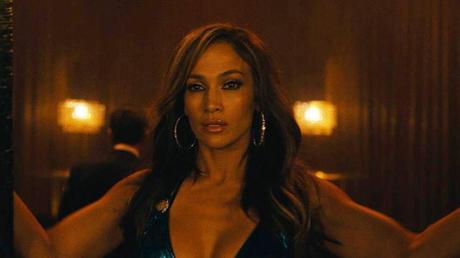
We've forgotten what this feels like. In Hollywood's great, underappreciated labor struggle of the past two decades, the studios have been in constant battle with the movie stars, fighting to take back all the power the Tom Hanks, Meg Ryans, Julia Roberts, Demi Moores, Tom Cruises, and Arnold Schwarzeneggers of the world fought so hard to gain back when times were good, the profit windows more reliable, and the number of entertainment options far more limited. The studios won. If movie stars still existed, people would actually pay to see the random dramas and comedies Elizabeth Olson, Dave Bautista, Chris Hemsworth, and other Marvel actors dare to make in-between their bouts of CGI superhero crimefighting. That doesn't happen because we don't have movie stars anymore; we have brands.
That's neither completely good nor completely bad. Thanks to peak TV, actors have never before had as many creatively challenging, soul-nourishing, or - if you just want to do a CBS procedural - bank account-padding options available to them as they do now. As audience members, we're no longer obliged to follow our favorite stars down every poorly chosen path. (Anyone remember paying to see something like Mary Reilly just because Julia Roberts was in it?) Heck, Jennifer Lopez, no stranger to bad movies, has taken advantage of this new era, devoting the past three years of her career to proving her acting bonafides as the star of the gritty NBC cop drama Shades of Blue.
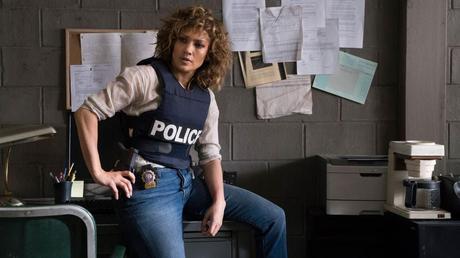
There's still, however, something special about seeing a movie star command the big screen. That's what Jennifer Lopez does through every second of Hustlers, from her jaw-dropping opening striptease number - keep reminding yourself, this physically flawless human being is 50! - to her spell-out-the-theme-of-the-movie final speech. Screenwriter/director Lorene Scafaria ( The Meddler) - adapting Jessica Pressler's 2015 New York Magazine article - has given Lopez the type of part men have been playing for years in one Goodfellas knock-off after another, and she rises to the occasion. The Oscar campaign begins now.
But - and this might surprise some based on the trailers and the critical response so far - this isn't actually Jennifer Lopez's movie. She steals it, don't get me wrong, but she's not meant to be the focal point. That part falls to Constance Wu's Destiny, a second-generation Cambodian immigrant abandoned by her mom as a child, raised by her grandmother, and basically unhirable as an adult due to her high school-level education and lack of work experience. She's the actual main character of the story.
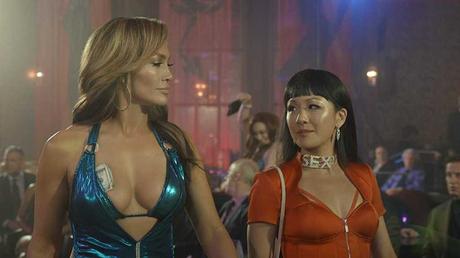
Not too long after turning to stripping in one of New York City's best clubs, Destiny begs her way into becoming Ramona's protege and the two quickly form a killer duo, prowling the floor like lionesses and escorting men up to the Champagne Room for a dance. If the men weren't so focused on the gyrating body parts in front of them they'd notice Desinity's eyes are almost always transfixed on Ramona, not them. She is perpetually in awe of this goddess of a woman, looking at her in much the same way Rooney Mara looks at Cate Blanchette throughout Carol. You're never sure if there is romance on the horizon between the pair or if Destiny simply adores Ramona like she would her own mother.
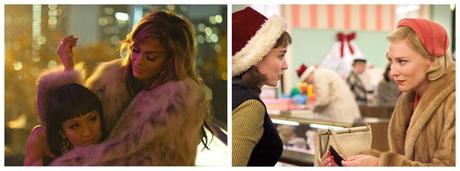
You're also not sure where the movie is going with all of this. What we're watching is all happening in 2007, but then at some point, we quickly cut to 2014, a time when Destiny is talking to Julia Stiles' version of Jessica Pressler. This version of Destiny is more put-together and traditionally presentable, sitting in a gorgeous suburban home, with the only hint of her scandalous past being the garish gold earrings and necklaces she proudly models. How did she get from there to here? And why does she have such a chill to her voice when she mentions Ramona?
Then we cut to 2008. That's when Hustlers truly begins and reveals its mission statement, which means the rest of the review must run with a spoiler warning.
So many Goodfellas, Wolf of Wall Street, and Scorese-aping tales of American greed and corruption revolve around criminal men and inevitably feature montages where their ill-gotten gains lead to gorgeous, half-naked women all around. Hustlers dares to ask what that experience is like for those women, and what happens to them when the money goes away. In this case, what happened to New York City's strippers when the economy collapsed in 2008 and their core clientele - Wall Street bankers - either lost their jobs or cushy expense accounts?
The answer: some of them quit and tried to make due with 9-to-5 retail jobs, others hitched their wagon to irresponsible men, and yet others stayed at it, hoping the good days would come back again despite all the signs saying otherwise. ("These new Russian girls will blow the guys for $300 a pop" becomes a sign of the end times.)
Ramona tries the 9-to-5 life, but can't make the schedules work as a single mom. Destiny takes a stab at domesticity and has a daughter but the dad runs out on them after just two and a half years. An old friend from their stripping days (Keke Pfeiffer's Mercedes), as well as a new friend (Lili Reinhart's Annabelle), have similar hard-luck experiences.
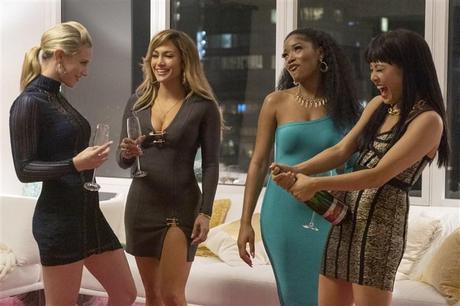
By 2011, they've all had enough and hatch their hustle, one which involves meeting men at nearby bars, drugging and escorting them back to the strip club, and then maxing out their credit cards. It's dependent on hungover Wall Street types never looking into why they charged $5,000 at a strip club they don't remember attending, and it's morally ok because "these are the same assholes who destroyed this country and not one of them went to jail" Ramona argues. Soon enough, the girls have more money than they ever imagined possible. Cue montages of exorbitant shopping sprees.
Yet, even as the "then they got crazy rich" portion of this doomed crime story plays out Scafaria never loses track of Ramona and Destiny's relationship. On one glorious Christmas morning, for example, all of the girls and their kids - pay attention and you'll notice there isn't a single man in the scene - gather to share Christmas presents. It's genuinely touching to see Ramona and Destinity open their perfectly-selected, clearly-expensive gifts, each of them happily settled into their mother-daughter thing.
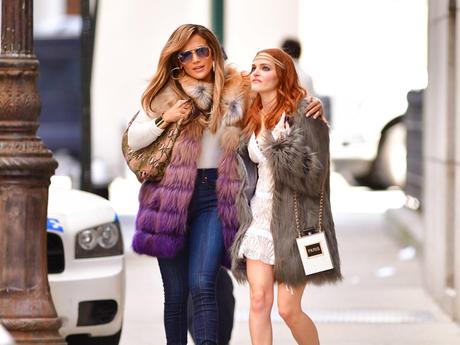
Where Hustlers falters is in the inevitable downfall portion of the story. For reasons never fully explored, Ramona's greed grows out of control and she takes on a new protege (pictured above) clearly unworthy of her infinite patience. However, it plays out this way largely because it's all happening through Destiny's point of view, and she clearly does not like this new side of Ramona or the competition for her affection. (Faint shades of the Jared Leto, Brad Pitt, Ed Norton conflict in Fight Club). Scafaria's script pulls off a couple of neat tricks in this area, such as temporarily dropping all of the audio when the 2014 Destiny grows hostile toward the reporter, turns off her tape recorder, and throws her out of the house.
Anyone who has read Jessica Pressler's article knows the real Destiny - real name Roselyn Keo - is unpredictable and, by her own admission, not 100% reliable. When they sent the final article for her approval, she recanted everything and claimed she made it all up even though everyone else in the story had already corroborated her account of events. Then, days later, she recanted her recanting, telling Pressler "I am saving myself. I am out for myself."
That line - even though it never actually makes it into the movie - serves as the central tragedy of Hustlers. In the end, the women have to look out for themselves, but for a brief period, they'd formed a wonderful sisterhood. The morality of how they got there is obviously dubious. (Stiles' journalist, much as the real Jessica Pressler, admits she sides with the women over the men they conned.) But for a while they had a good thing going, and Jennifer Lopez and Constance Wu makes this a joy to behold.
RANDOM PARTING THOUGHTS
- Lorene Scafaria takes all the Goodfellas comparisons - it's not just the subject matter but also the use of pop music and montage that strikes a familiar chord - as a compliment. How could she not? It's no accident that she put Mercedes Ruehl in the cast as the strip club's den mother.
- Once Hustlers jumps to 2008, there are precious few actual strip scenes, but the dance sequences we do see are always filmed with the intent to impress instead of titillate. Scafaria - like Katt Shea before her with 1987's Stripped to Kill - is clearly in awe of the physicality it takes to pole dance.
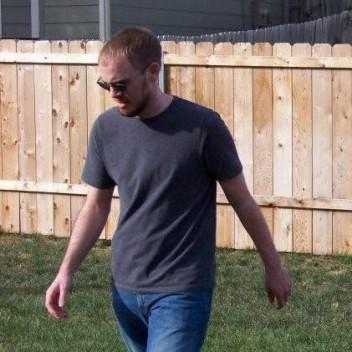
Grew up obsessing over movies and TV shows. Worked in a video store. Minored in film at college because my college didn't offer a film major. Worked in academia for a while. Have been freelance writing and running this blog since 2013. View all posts by Kelly Konda

